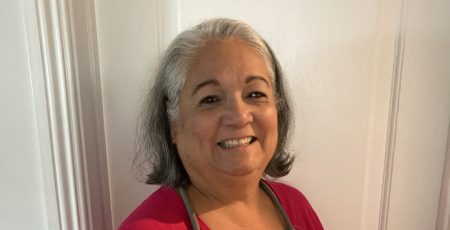
14 May The risk for COVID-19 associated pneumonia in those with underlying chronic lung disease
The COVID-19 pandemic is a truly global crisis that has touched every one of us in one way or another. However, those who are older or who have underlying health conditions are both more susceptible to viral infection and more likely to develop severe complications. Without a vaccine or effective treatments for a severe COVID-19 infection, the most effective means of lowering these risks was to impose stay-at-home ordinances. Now, when venturing out of the house, we are becoming used to observing precautions such as social distancing, wearing facial mask/coverings, and handwashing and disinfecting objects that are brought back into the home.
Here we address the risks for the most serious complications of COVID-19, such as pneumonia and respiratory failure. And we discuss additional risks that should be emphasized for individuals who are elderly or who have chronic diseases.
To understand the risks of COVID-19, we first will review how community-acquired pneumonia is usually transmitted and how pneumonia can be, even before the era of novel coronavirus infection, a serious problem. Respiratory infections caused by viruses or bacteria are generally transmitted from person to person via small, aerosolized droplets exhaled from the nose or mouth of an infected individual. For transmission to occur, these tiny droplets contact the fluids lining the eyes, nose or mouth, and trigger an infection. Touching one’s face after hand contact with a contaminated surface can introduce the virus to the eyes, nose, or mouth. However, for the most part, COVID-19 infections occur via aerosol droplet inhalation. This is the same way that tuberculosis or flu is transmitted.
There are no specific clinical symptoms or features that can reliably distinguish between infection by the novel coronavirus and other respiratory infective agents. Flu-like symptoms are typically cough, fever, chills, muscle aches but may include headache, sore throat, chest pain, abdominal pain, confusion, weakness, and malaise. Loss of smell or taste has also been described commonly.
When the virus takes hold in the lungs, causing pneumonia, patients complain of shortness-of-breath especially those who have an underlying chronic respiratory illness. Pneumonia is more likely in susceptible individuals over the age of 65 and in those with chronic conditions, in particular COPD, asthma, or heart disease. U.S. data shows that 80% of deaths occur in those greater than 65 years of age. Although it is increasingly recognized that those aged 50 or older are at higher risk for severe COVID-19 associated pneumonia. Those who have underlying problems such as chronic lung, heart, liver or kidney disease, diabetes, hypertension, obesity, cancer, or impaired immune system are also more likely to have complications. Over 90% of deaths in LA County from COVID-19 have been in seniors or those with underlying health conditions.
This novel coronavirus has other unique characteristics that are new to the doctors and nurses and public health officials combatting the pandemic. It is easily transmitted by individuals who do not know they have it. These individuals may be asymptomatic (without symptoms) or presymptomatic (2-3 days before they start to feel ill). This feature of the virus helps it to be transmitted rapidly throughout a local community. Even those with minimal symptoms have been found to show early signs of pneumonia, often in both lungs. Those with shortness of breath (also termed “dyspnea”) should contact their primary physician or emergency room immediately by phone because this is a worrisome sign for sudden and potentially serious progression of the infection.
Some seniors with underlying pre-existing illnesses may experience “atypical” signs of pneumonia. Geriatric physicians have recently noted that some patients infected with COVID-19 do not have the usual fever or cough but seem, confused, apathetic, or “not acting like themselves.” They may be susceptible to falls as a result of weakness or fatigue. Some people with advanced age may show signs of dehydration or difficulty regulating blood pressure including feeling faint and having lower than normal temperature. Recognizing these atypical signs may help to get early treatment for seniors with COVID-19.
Without crowd immunity or effective treatments, we are dealing with a virus that is more lethal than influenza or almost any microorganism we have seen in normal times. For this reason, it is important to monitor regularly your own health and the health of those in your household.
Should flu-like symptoms occur:
- Keep a record of your symptoms and your temperature
- Isolate from other individuals in your household
- Contact your doctor
- COVID-19 and influenza virus testing may be recommended
If you develop symptoms of shortness of breath:
- Contact your doctor or emergency room immediately
- The doctor may order a chest Xray to identify whether you have pneumonia
- The doctor will measure the oxygen in your blood (blood oxygen saturation), which is a good indicator of the severity of the pneumonia. You can purchase over the counter or online a pulse oximeter (if you don’t already have one), to measure your blood oxygen levels at home. See our pages on pulse oximeters and oxygen saturation for more information. And remember, a pulse oximeter does not test for whether or not you have COVID-19.
As emphasized by many epidemiologists, physicians, and public health care experts, the major effort to control the viral spread and the risk of infection should continue with preventive behavioral measures. The viral pandemic may evolve. We have been warned about a “second wave” once shelter-in-place restrictions are lifted. So, we all need to remain vigilant. Seniors, and those with underlying illness, should watch and listen for upcoming guidance on how to take the most precautions at the time when general public health measures are slowly relaxed to help our crippled economy. In the meantime, it is essential that those at greater risk remain at home unless absolutely necessary. For now, venture out only in situations where you can see that you and others adhere to the precautions that minimize exposure to the aerosolized virus. Please continue to maintain physical distance, wear facial coverings to contain exhaled secretions, and keep to well ventilated spaces.
Robert Chang, MD, and Harry Rossiter, PhD
PERF Board Members





Cindy Schmitz
Posted at 13:31h, 15 MayNice job Dr. Chang!
Cindy Schmitz
Posted at 13:31h, 15 MayNice job Dr. Chang! All the best!